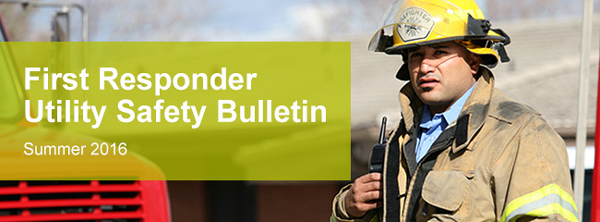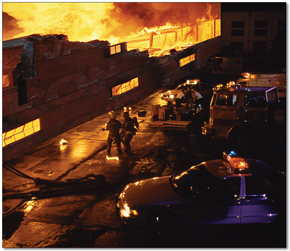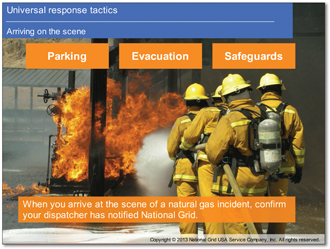Connect with us.

Natural gas leaks, explosions and fires: Are you prepared
|
||||||||||||||||||||||||||||||||||||||
 |
There’s a significant increase in construction work during the summer and fall months, including roadwork, building construction and roofing, as well as other seasonal work like landscaping, agriculture and farming. Much of this work involves digging and excavating. With about 305,000 miles of natural gas transmission lines in the U.S. and 2.6 million miles of gas pipelines, there’s a serious risk for accidents.
In fact, the leading cause of accidents in both transmission and distribution systems is damage caused by digging and excavating. This damage accounts for roughly 60 percent of incidents. Other events, like vehicle and equipment contact with aboveground meters or regulators, contribute to additional incidents. A resultant gas leak, explosion or fire can be disastrous.
Case-in-point: Construction-related contact with gas line turns deadly
Emergency personnel responded to the scene of a natural gas pipeline rupture caused by construction workers. The responders did not check nearby buildings to determine if gas was accumulating or to help assess the need for a possible evacuation, even though the high-pressure pipeline was continuing to leak. About 39 minutes after the pipeline rupture, an explosion occurred. It destroyed six buildings, killed four people and injured eleven, including two firefighters and one police officer.
Train to respond safely to natural gas incidents
 |
|
| Sample screen from e-learning module 4: gas incident management |
The National Grid First Responder Utility Safety Training Program is an e-learning program that provides emergency response personnel with a solid understanding of utility hazards. For example, Module 4 of the Natural Gas Safety Training Certification, entitled Gas Incident Management, addresses specific response procedures appropriate to various incident types. Through this training you will learn the knowledge, skills and technical ability required to respond to a natural gas emergency.
Call Before You Dig
Remind your colleagues, friends and the public to call your underground utility locator service toll-free at 811 well in advance of digging or moving the earth in any way.
They will arrange to mark underground natural gas pipelines, underground electric power lines and other buried utilities so that everyone can work safely.
Keep yourself, your team and the public safe. Register today and complete your utility safety training. Visit firstresponder.ngridsafety.com.
 |
Smell Gas. Act Fast. |
Massachusetts contactsGas emergencies:
|
New York contactsGas emergencies:
|
Rhode Island contactsGas emergencies:
|
||||